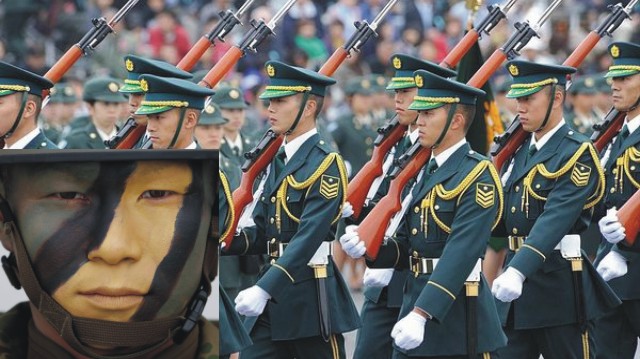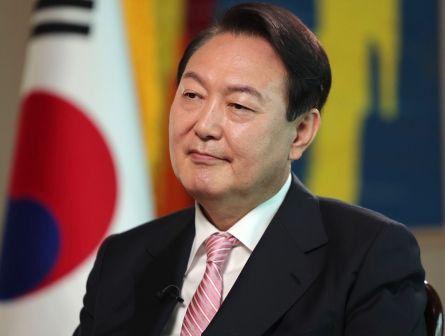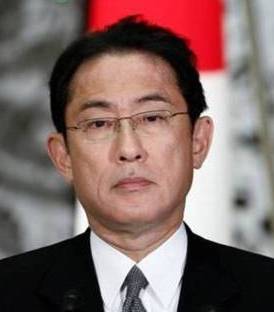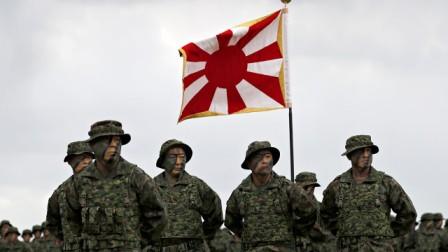

It seems as if the Russia-Ukraine indirectly and the Chinese belligerence in the region directly has forced another country to give up its long-standing stand of being a non-military nation.
Pacifist Japan has said it would soon start a once-unthinkable $320 billion military build-up that would arm it with missiles capable of striking China and ready it for a sustained conflict as regional tensions and Russia’s Ukraine invasion stoke war fears, globally.
 Last week, Japan approved a new national security strategy – one of the country’s largest defence shake-ups since World War II. This is a marked shift from the country’s pacifist approach, which has dominated its political discourse for decades.
Last week, Japan approved a new national security strategy – one of the country’s largest defence shake-ups since World War II. This is a marked shift from the country’s pacifist approach, which has dominated its political discourse for decades.
Fumio Kishida’s Japanese government worries that Russia has set a precedent that will encourage China to attack Taiwan, threatening nearby Japanese islands, disrupting supplies of advanced semi-conductors, and putting a potential stranglehold on sea lanes that supply Middle East oil.
The newly released National Security Paper spells out that Russia’s invasion of Ukraine is a serious violation of laws that forbid the use of force and has shaken the foundations of the international order, and the strategic challenge posed by China is the biggest Japan has ever faced.
In its sweeping five-year plan and revamped national security strategy, the Japanese government said on 16th December, that it would also stockpile spare parts and other munitions, reinforce logistics, develop cyber-warfare capabilities, and cooperate more closely with the United States and other like-minded nations to deter threats to the established international order.
Neighbours’ Reaction
Neighbouring South Korea issued a strong protest against Japan’s territorial claim over disputed islands made in a national security paper, while cautiously responding to Tokyo’s plans for an unprecedented military build-up.
South Korea’s foreign ministry has demanded an immediate removal of the territorial claims from Japan’s national strategy documents, saying in a statement that the move did nothing to help “building a future-oriented relationship” between the two countries, and it hoped the implementation of Japan’s new security policy will be transparent and contribute to regional peace and stability while continuing to uphold the spirit of is pacifist constitution.

On his part, South Korean President Yoon Suk-yeol who took office in May has tried to improve ties with Tokyo, which have been marred by the territorial row over the islands and historic disputes stemming from Japan’s 1910-1945 occupation of Korea.
However, President Yoon,had said in an interview in November that it was understandable for Japan to boost its defence spending given the growing threat from North Korea’s ballistic missile programme.
Meanwhile, China has said said that hyping up the threat posed by Beijing to back its military build-up “is doomed to fail.”
Chinese Foreign Ministry Spokesperson Wang Wenbinhas said that Japan’s new defence policy ignores facts, deviates from its commitment to China-Japan relations and the common understandings between the two countries, and groundlessly discredits China’s defence building and normal military activities.
China resolutely opposes this and has made serious demarches to the Japanese side through diplomatic channels.
American Praise
US National Security Advisor Jake Sullivan has praised Japan’s new national security and defence strategies, saying they will also support the US-Japan alliance.
 Sullivan also praised Japanese Prime Minister Fumio Kishida’s commitment to international peace, nuclear non-proliferation, and his leadership, including support for Ukraine.
Sullivan also praised Japanese Prime Minister Fumio Kishida’s commitment to international peace, nuclear non-proliferation, and his leadership, including support for Ukraine.
The reason for United States to welcome the Japanese decision stems from the prism, which it uses to view China.
United States sees China as “the only competitor with both the intent to reshape the international order and, increasingly, the economic, diplomatic, military, and technological power to advance that objective.” Washington has positioned the next decade – the same period covered by Japan’s three new security documents – as a critical period.
Japan becomes 3rd-biggest military spender
Unthinkable under past administrations, the rapid arming of Japan, which already hosts U.S. forces, including a carrier strike group and a Marine expeditionary force, has the backing of most voters, according to opinion polls. Some surveys put support as high as 70 percent of voters.

Kishida’s plan will double defence outlays to about 2 percent of the gross domestic product (GDP) over the next five years, and increase the defence ministry’s share to about one-tenth of all public spending.
It will also make Japan the world’s third-biggest military spender after the US and China, based on current budgets.
The five-year spending roadmap did not come with a detailed plan for how Kishida’s administration would pay for it, as ruling Liberal Democratic Party lawmakers continue to discuss whether to raise taxes or borrow money.
Having seen Russia’s and Ukraine’s enormous expenditure of munitions and material, the Japanese government is focused on buying munitions, spare parts, and other equipment that the Japanese forces will need if a conflict breaks out in the next few years.
In addition, Japan will acquire new capabilities, such as long-range missiles that can strike enemy missiles on the launchpad, and it will invest in future high-tech capabilities in realms such as cyber and space.

In toto, Japan’s armed forces will fast become much more formidable in the near future.
In fact, Japan becomes the second country after Germany to give up its post-WW II stance on being a military power, in the backdrop of the Russia-Ukraine war.
But the notable point is that in both cases the U.S. has welcomed the decision of both the governments, as it will translate in big business for its armaments industry.
In reality the Japanese decision may lead to an end to the ear of non-alignment and efforts to establish world peace sans armaments. ![]()
___________
Also Read:
Centre’s Opaque Auction Rules For Pulses Rip Off Govt Coffers, Help Millers Strike Rich
Need to amend laws like UAPA to provide for punishment for those who slap false cases
Global Arms Trade: Who are the real winners?
Why not 40 pc tickets for women in Punjab and elsewhere?
Punjab – How a deadly cocktail of Agri-Water-Energy nexus going to destroy it?

Disclaimer : PunjabTodayTV.com and other platforms of the Punjab Today group strive to include views and opinions from across the entire spectrum, but by no means do we agree with everything we publish. Our efforts and editorial choices consistently underscore our authors’ right to the freedom of speech. However, it should be clear to all readers that individual authors are responsible for the information, ideas or opinions in their articles, and very often, these do not reflect the views of PunjabTodayTV.com or other platforms of the group. Punjab Today does not assume any responsibility or liability for the views of authors whose work appears here.
Punjab Today believes in serious, engaging, narrative journalism at a time when mainstream media houses seem to have given up on long-form writing and news television has blurred or altogether erased the lines between news and slapstick entertainment. We at Punjab Today believe that readers such as yourself appreciate cerebral journalism, and would like you to hold us against the best international industry standards. Brickbats are welcome even more than bouquets, though an occasional pat on the back is always encouraging. Good journalism can be a lifeline in these uncertain times worldwide. You can support us in myriad ways. To begin with, by spreading word about us and forwarding this reportage. Stay engaged.
— Team PT


Copyright © Punjab Today TV : All right Reserve 2016 - 2025 |